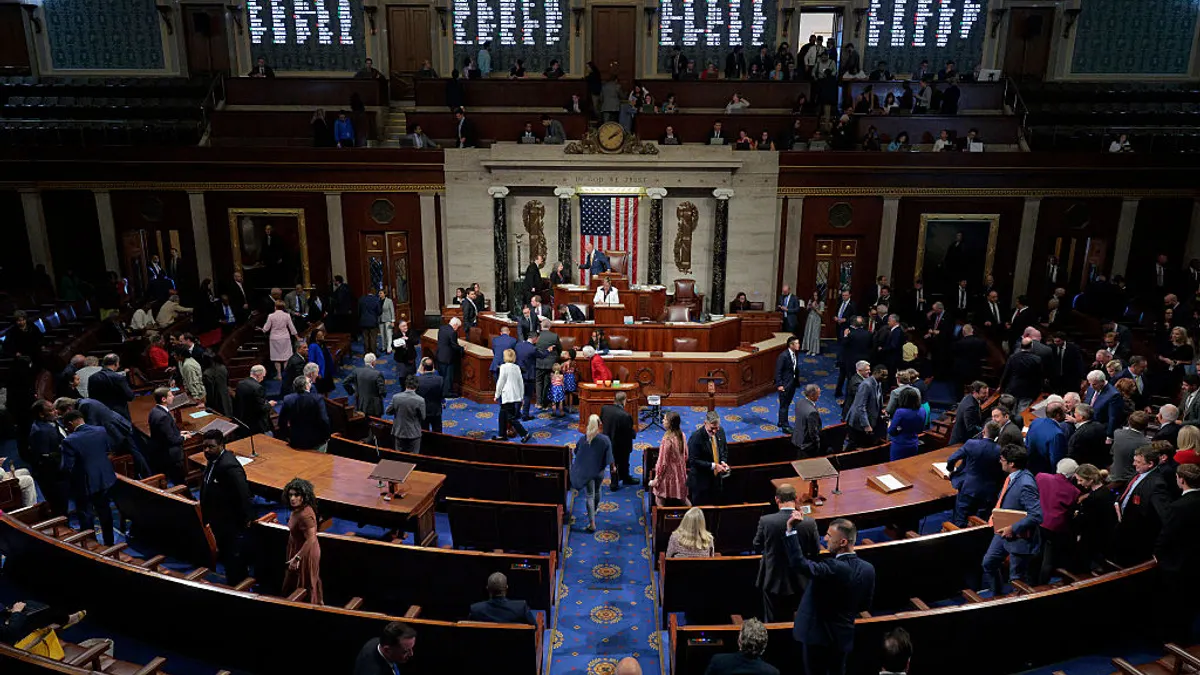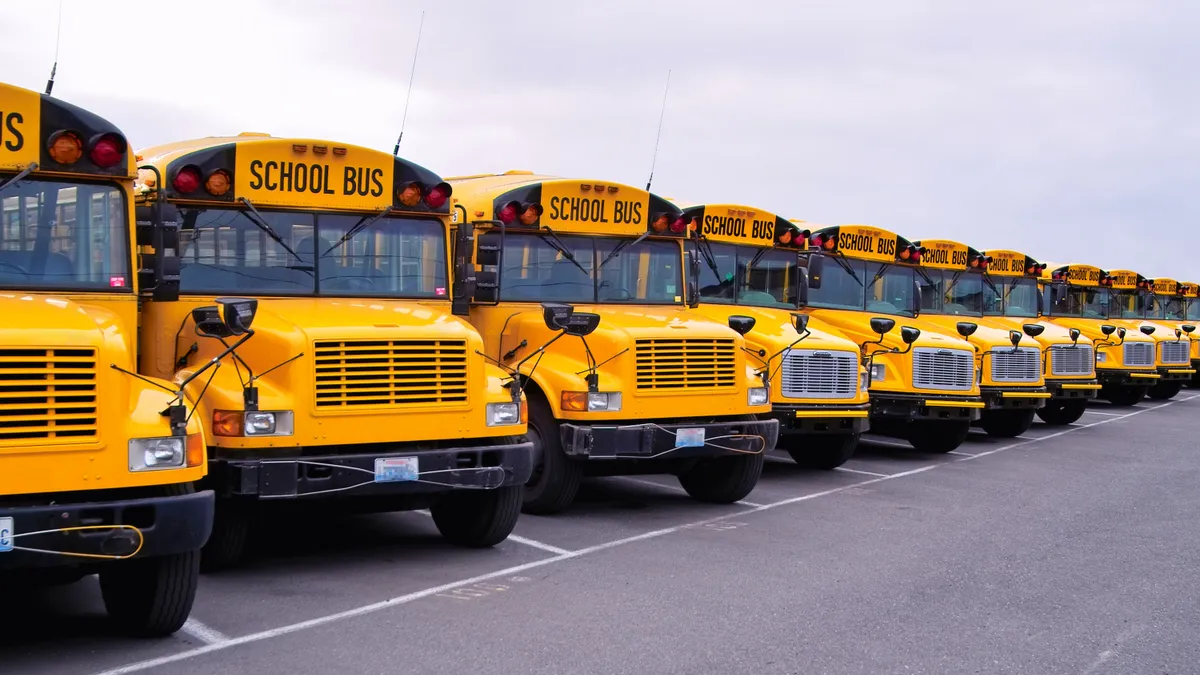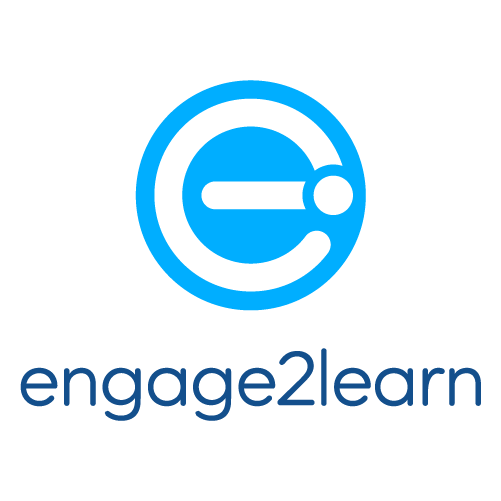Sarah Hutchins is a partner in Parker Poe’s Charlotte office and leads the Cybersecurity & Data Privacy Team. Laura Lashley serves as counsel in the Atlanta office, advising clients on education policy and technology. Will Barker is an associate attorney in Raleigh, where he concentrates his practice on intellectual property transactions.
As an increasing number of states pass or consider a “parents’ bill of rights,” K-12 schools and their vendors may be surprised to learn how some of these laws create additional obligations for data privacy, data collection and access to data.
While some of these new statutes do nothing more than restate current federal and state law protections, others have more teeth. Some, for example, create broad additional state data privacy requirements on top of federal law that may require school districts and vendors to go back to the drawing board to determine compliance.
North Carolina’s parents’ bill of rights, SB 49, was adopted in August 2023. It expands parents’ access to instructional materials and information related to their child’s education and health.

SB 49 requires public school districts to create policies that provide parents with information related to parental involvement in schools, legal rights for their child’s education and guides for student achievement. Schools must also provide parents with notifications on student physical and mental health, among other information, within specific timelines of a parent’s request.
While much of SB 49 repeats state and federal protections that already exist, the bill significantly expands legal obligations in certain areas, particularly the collection of data from surveys and access to student information.
What impact will SB 49 have on surveys?
Each year, schools across the country hand out myriad surveys to students on a range of topics. These surveys allow districts to assess how they are doing on safety, virtual learning, or changes in population and demographics.
But if the survey in question touches on any protected information — such as political affiliation, mental health, sexual behavior, religion or income — federal protections under the Protection of Pupil Rights Amendment come into play.
If the survey is required and paid for with federal funds, the PPRA requires that the school obtain parental consent before administering that survey.

If the survey containing protected information topics is optional or not paid for with federal funds, the rights afforded to parents are limited under PPRA to providing advance notice of the survey’s planned administration, review of the survey materials, and an opportunity to opt the student out of participation in the protected information survey.
Districts and the vendors they hire to administer these surveys are well aware of these requirements, but what they may not be aware of is how SB 49 and other parents’ bills of rights have expanded parental control over surveys beyond what the PPRA requires. While advance parental consent was required in limited scenarios under the PPRA, SB 49 has changed the game.
Now, if a school wants to issue any survey touching on a protected information topic, advance parental consent — also known as an affirmative opt-in — is required. In other words, parents will always need to sign off first before their children can participate in certain surveys or evaluations.
Schools will also have to give time for parental review of a protected information survey, generally 10 days prior to the survey’s administration, and seek parental consent to provide the minor student the survey.
Without this affirmative opt-in consent, students can’t participate in a protected information survey.
While sensitive areas like political affiliations and religion are generally avoided in student surveys, school districts around the country have been proactively expanding their services and outreach to include social and emotional support for students. Many of these programs utilize surveys to gauge how students are feeling and coping, particularly in the aftermath of the pandemic’s impacts on school-age children.
Questions regarding a student’s mental well-being could potentially cross the line into requiring the heightened level of consent now required by SB 49, and thus, districts and vendors need to consider their survey questions carefully to avoid running afoul of the law’s requirements.
Similarly, school districts that provide outreach to students living in poverty may use surveys to find those students experiencing food insecurity and housing loss. If the question asks for income information, it could trigger SB 49’s scrutiny, as well.
Since its adoption a few months ago, the bill is already having impacts.
According to one Parker Poe client who works as an education advisor partnering with school districts and universities, requiring affirmative parental consent would likely drop survey participation from approximately 80% to 20%. To avoid this drop in participation, districts and vendors will need to consider their questions carefully.
SB 49's impact on access to information
The requirements under North Carolina’s parents’ bill of rights adds another compliance layer to what has already been enacted at the federal level concerning parental access to student records.
In the 1970s, Congress passed the Family Educational Rights and Privacy Act. FERPA gave parents the right to inspect their child’s education records as well as a right to demand that the school correct any inaccuracies in those records. Under FERPA, schools have a maximum of 45 days to provide the parent with access to the student’s education records.
Fast forward to today, and a large number of states are looking to add more legal rights for parents.

In 2023, 32 states considered legislation related to creating a parents’ bill of rights around education, according to research from the National Conference of State Legislatures. Ten states, including Arizona, Connecticut, Florida, and New York have existing parental rights statutes on the books.
In North Carolina, the bill allows parents to review textbooks and other instructional materials along with information regarding promotion and retention, and records of what their child borrowed from the library. Parents can get report cards and be notified of any changes in their child’s mental health or if the student changes his or her name or pronoun.
One of the key ways these parents’ bills of rights have increased parental access to student records is by shortening that 45-day timeline for the school district to comply with the parent’s request. Under SB 49, schools now have 10 business days to comply with a parental request for information, and if they cannot comply within that window due to the complexity or volume of the request, they must provide an extension notice and provide the requested information within 20 business days.
This significantly cuts the time school districts have to gather what can be voluminous records and information, thus tightening FERPA’s mandate to provide access.
While FERPA’s access is limited to education records of that student — records that directly relate to that student and are maintained by the school district in the student’s record — SB 49’s information access goes a few steps further to include broad buckets of information. That can include instructional materials, including supplementary materials used, to the licensure and credentials of the student’s teachers.
With such a shortened timeline, school districts must be ready and have a plan in place to provide parents with this critical access, and ensure they are working with ed tech and curriculum vendors who can do the same. With many education technology platforms providing video lessons and adaptive learning modules geared to students’ individual progress, these platforms must be ready to assist their district clients in compliance by making whatever is presented to the student on the platform readily available to their parents.
While there has yet to be any case law or insight provided into SB 49’s enforcement, it is already becoming clear that SB 49 — and similar laws like it around the country — is impacting how some education-related businesses operate.
Law clerk Hunter Snowden also contributed to this article.






 Dive Awards
Dive Awards














